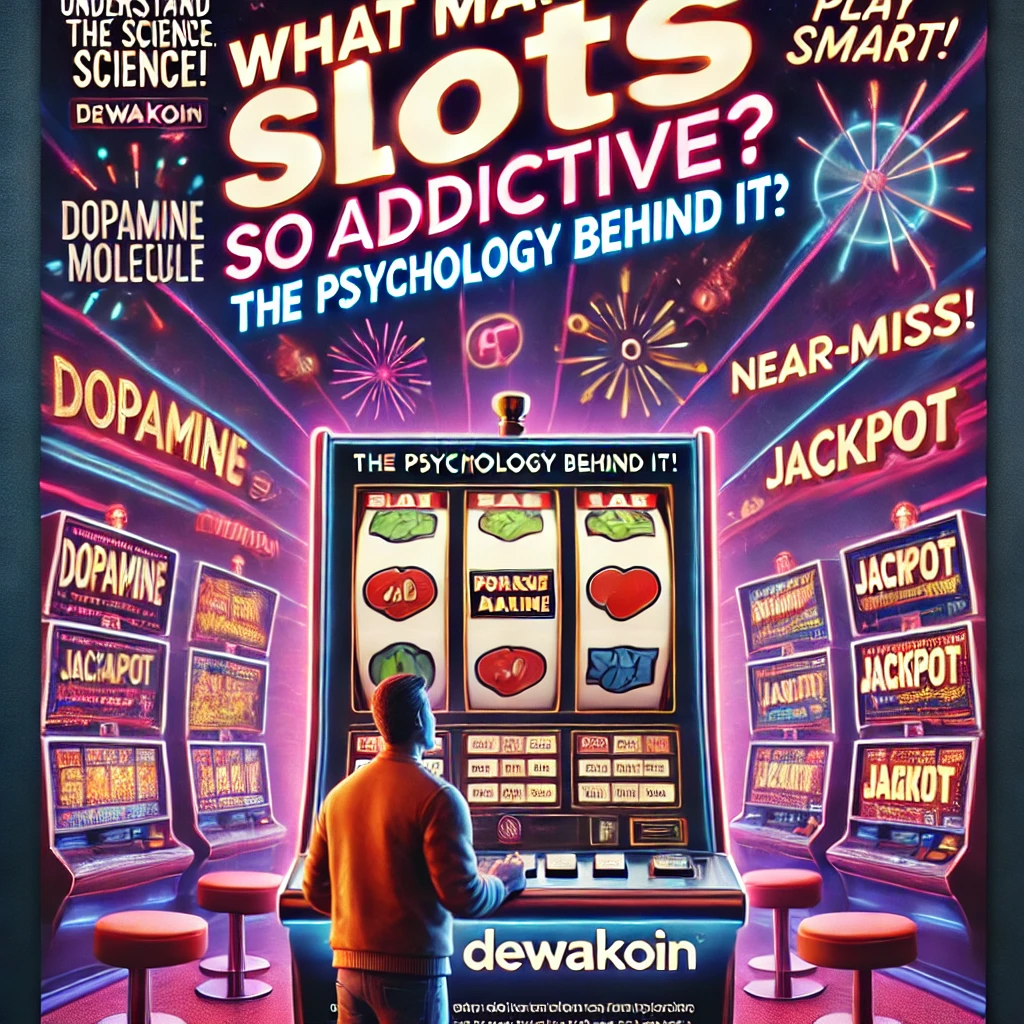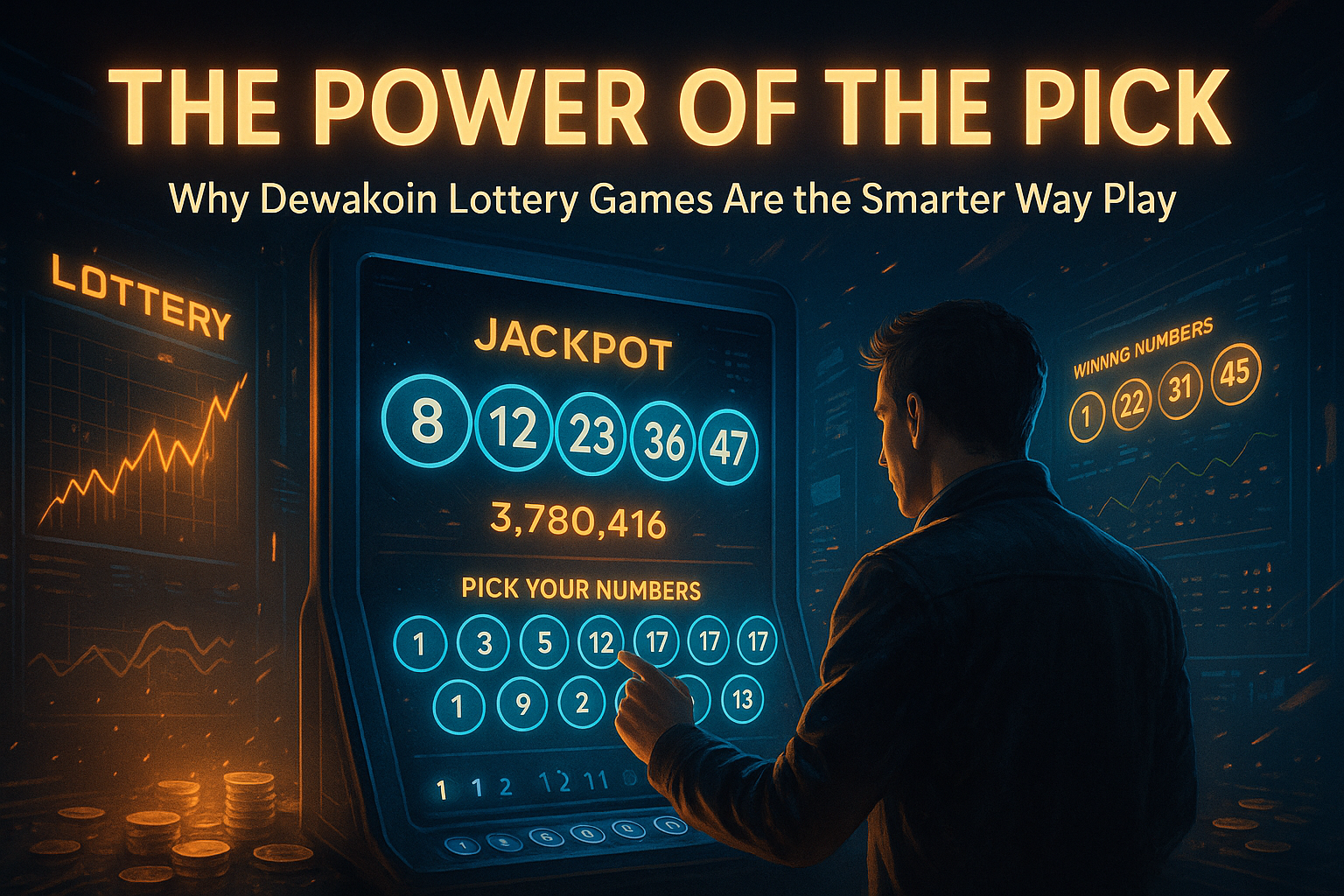Slot machines are designed to keep players engaged, spinning for just one more round. But have you ever wondered why they’re so hard to resist? The answer lies in psychology, game design, and brain chemistry. At Dewakoin, we’re uncovering the science behind slot addiction and how casinos use subtle tactics to keep you playing.
1. The Dopamine Effect: The Rush of a Near Win
Every time you spin the reels, your brain releases dopamine, the same chemical responsible for pleasure and motivation. Even if you don’t win, the act of playing itself creates excitement and anticipation.
🎯 How It Works:
✔ Near-misses (e.g., two jackpot symbols landing but missing the third) trick the brain into thinking a win is close.
✔ Small, frequent payouts keep dopamine levels high.
✔ Bonus rounds trigger extra excitement and anticipation.
🔹 Fun Fact: Studies show that even near-misses activate the same brain regions as real wins, making you want to keep spinning.
2. The Illusion of Control: Do You Really Influence the Game?
Many players believe they have control over the outcome, even though slot machines run on Random Number Generators (RNGs). This illusion makes players feel like skill and strategy matter, when in reality, every spin is independent.
🎯 Common Player Beliefs:
✔ Stopping the reels at the “right moment” increases your chances of winning.
✔ Playing at a certain time of day influences payouts.
✔ Picking specific machines improves odds.
🔹 Reality Check: Slot results are purely random, but casinos use visual and sound effects to make players feel in control.
3. The “Just One More Spin” Trap
Ever told yourself you’ll stop after one more spin—only to keep going? This is known as the sunk cost fallacy, where players feel invested and don’t want to quit empty-handed.
🎯 Why It Works:
✔ Losses disguised as wins (small payouts that are actually lower than your bet).
✔ Progressive jackpots create the feeling that the next spin could be life-changing.
✔ Free spins and bonus rounds give the illusion of extra value.
🔹 Pro Tip: Set a win/loss limit before you start playing to avoid chasing losses.
4. Sound and Visual Stimulation Keep You Hooked
Slots are designed with bright lights, immersive graphics, and celebratory sounds, making every spin feel exciting—even when you’re losing.
🎵 How Casinos Use Sound & Graphics:
✔ Winning sounds play even when you lose money, making you think you’re ahead.
✔ Flashing lights and animations reward small wins, even if they don’t cover your bet.
✔ Background music creates a relaxing or thrilling atmosphere, depending on the game.
🔹 Fun Fact: Some slot games use upbeat music during spins and slower, calming music when players stop—encouraging them to keep playing.
5. Variable Rewards: The Power of Unpredictability
Slot games operate on a variable reward schedule, meaning you never know when a big win is coming. This unpredictability triggers compulsive behavior, similar to social media notifications or checking texts.
🎯 Why It’s So Addictive:
✔ Wins are random, making each spin feel like a new chance at a jackpot.
✔ Big wins reinforce the idea that playing longer leads to payouts.
✔ Losses don’t stop play, because players think the next spin might win.
🔹 Real-World Example: This same reward system is used in video games, social media apps, and sports betting to keep users engaged.
Final Thoughts: Play Smart, Stay in Control
Slots are scientifically designed to be addictive, but understanding these psychological tricks can help you play responsibly. The best way to enjoy slot games is to:
✅ Set a time limit and budget before playing.
✅ Play for entertainment, not as a way to make money.
✅ Recognize when casinos are using tricks to keep you spinning.
At Dewakoin, we believe in responsible gaming. Whether you’re playing for fun or chasing big wins, knowing how slot psychology works helps you stay in control and maximize your experience.










